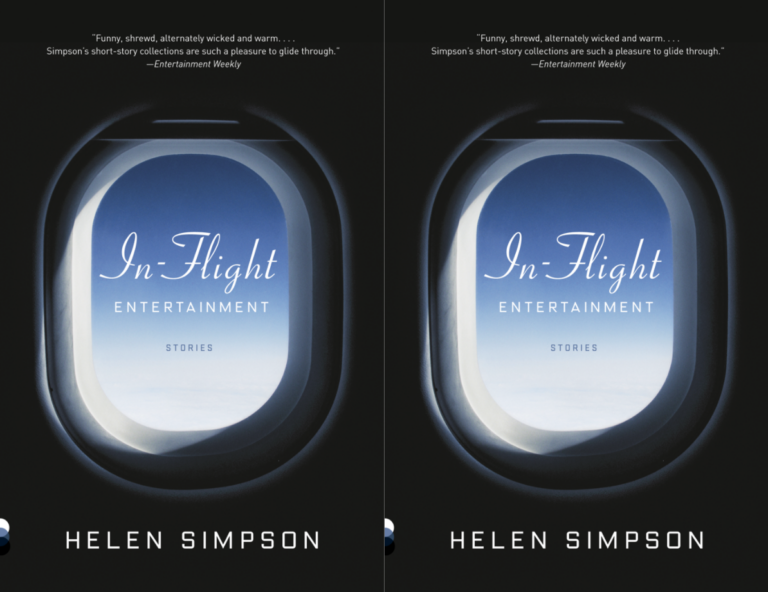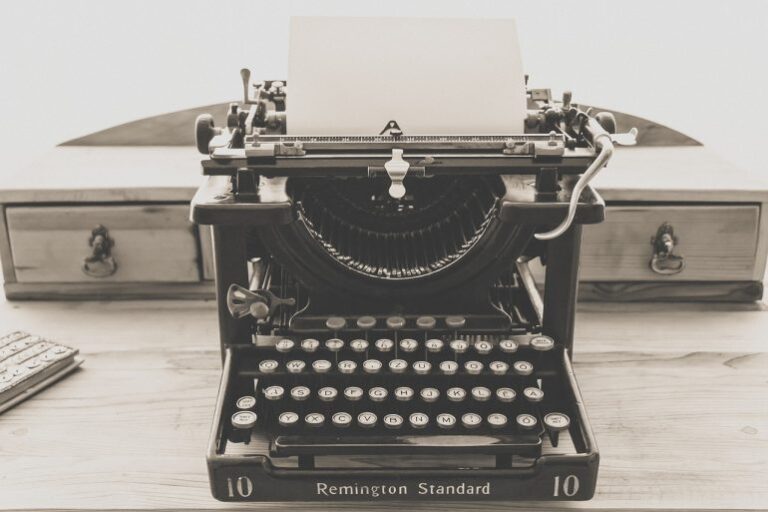Nine Things Writers Can Learn from (ahem) Science.
Okay, yes. I said “science.” (I’m about to judge me, too.) But as luck would have it, I submitted this blog just as Steven Pinker‘s “Science Is Not the Enemy of Humanities” was about to go viral. Pinker and I will high-five about our uncanny timing later, but meanwhile—let’s buy in. Because seriously, this is good:
The Atlantic called Edge.org “an epicenter of bleeding-edge insight across science, technology and beyond.” So when the website came out with a new book—This Will Make You Smarter: New Scientific Concepts to Improve Your Thinking—I went for it. Yes indeed, I read it cover to cover, sacrificing myself to the greater Writing Good.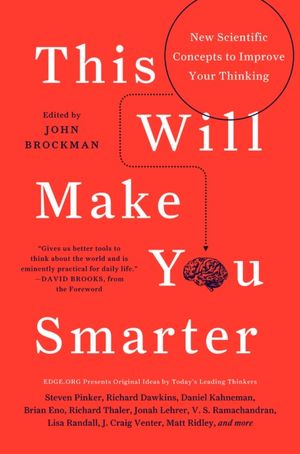
Here’s the deal: 150 of the world’s most influential thinkers were asked the same question: what scientific concept would improve everybody’s cognitive toolkit? The book collects their answers, and I’ve mined 9 ideas writers can use today, no science jargon necessary. You’re welcome.
9 Things Writers Can Learn from Science:
1. YOU Make the Meaning.
“The world keeps happening, in accordance with its rules; it’s up to us to make sense of it and give it value.”
–Sean Carroll, Theoretical Physicist
Carroll explains that, in a sense, the universe is pointless. There are no “reasons why” things happen—other than that they are the product of the universe behaving according to its laws.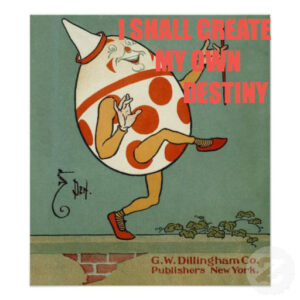
So. Two questions to ask yourself about your writing:
1. Am I waiting for someone or something else to give meaning to my work? How can I take the reins?
And 2: Am I making excuses for myself, my craft, or my content, based on a sense of fate?
If you’ve sealed off certain possibilities because you think the outcome’s predetermined, rethink your limitations.
2. Experiences Are Also Experiments.
“[P]eople who don’t see their actions as experiments and don’t know how to reason carefully from data will continue to learn less well from their experiences than those who do.”
–Roger Schank, Psychologist and Computer Scientist
When we see our experiences as experiments, we’ll recognize their outcomes as data to be analyzed. We can then learn about our habits, our practices, our own causes and effects.
What might your experiences experiments—whether as a writer, teacher, presenter, or performer—objectively tell you? What can you add, eliminate, or transform in order to get different—and better—results?
3. But Beware: Experience Can Also = Bias.
“Experience…colors and influences all of our perceptions by anticipating and predicting everything we encounter… Bias is the thumb that experience puts on the scale.”
–Gerald Smallberg, Practicing Neurologist
If we learn from experience (as in #2), great! But if it keeps us from exploring because we think we already know (or don’t need to know) the outcome, experience will derail creativity.
How have your experiences formed unconscious expectations, limitations, and/or predictions when it comes to your craft or content? Where can you attempt new causes, and/or expect different effects?
4. Throw Out Your Outdated Sh*t.
“Path dependence” refers to the fact that often something that seems normal or inevitable today began with a choice that made sense at a particular time in the past [and] survived despite the eclipse of its justification, because, once it had been established, external factors discouraged going into reverse to try other alternatives.”
–John McWhorter, Linguist; senior fellow, Manhattan Institute
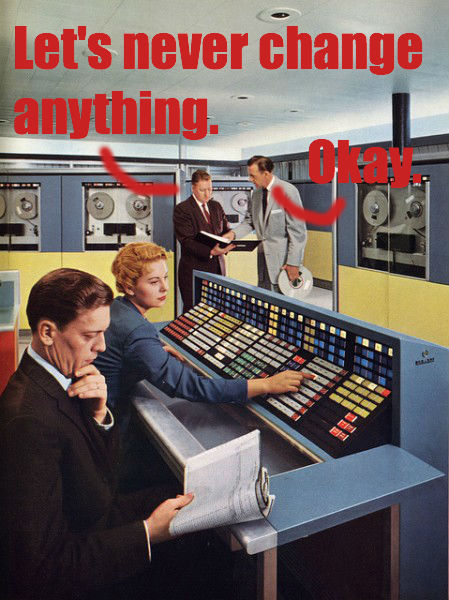 Take the QWERTY keyboard. It developed in part to keep the most-used keys under our weakest fingers—which kept typewriters from jamming. Obviously, our keyboards won’t jam now, but it’s too late—external factors set QWERTY in stone. (At least for the English-speaking world.)
Take the QWERTY keyboard. It developed in part to keep the most-used keys under our weakest fingers—which kept typewriters from jamming. Obviously, our keyboards won’t jam now, but it’s too late—external factors set QWERTY in stone. (At least for the English-speaking world.)
But your old ways, with their eclipsed justifications, may yet be changeable! So: what are you doing as a writer that has no present justification/reason? (Think of your routines, “rules,” etc.) Maybe these made sense at one time, but do they still? Are you sure?
Or: is there anything you’re accepting as “set in stone” that in fact has lost its original purpose/drive? Maybe you chose to write fiction because your favorite professor wrote novels, or chose to be an academic because you weren’t sure what else to do after grad school. What’s changed since then? Is anything new pulling at you? (And are you avoiding it because you think your trajectory is set in stone?)
In short: what’s no longer relevant?
5. Love You Some Failure.
“[Y]ou should carefully but deliberately press your successful investigations or accomplishments to the point where they break, flop, stall, crash, or fail…[T]he habit of embracing negative results is one of the most essential tricks to gaining success.”
–Kevin Kelly, Editor-at-Large, Wired Magazine
Write. Push yourself. Push your content. Give the finger to your (and others’) boundaries and expectations. Commit your “writing sins.” Fail. Embrace the failure. Repeat.
6. Shift Focus.
“[S]udden bursts of insight—the Aha! or Eureka! moment—come when brain activity abruptly shifts its focus… Two techniques seem promising: varying what you learn and varying where you learn it… [W]e should each invest a few hours a week in reading research that ostensibly has nothing to do with our day jobs, in a setting that has nothing in common with our regular workspaces.”
–Jason Zweig, Journalist
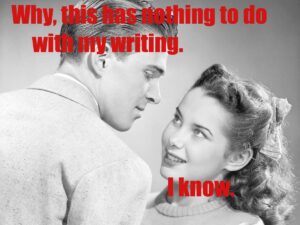 Okay, Zweig Writing Insight A: when you’re doing prolonged, focused writing—and particularly if you’re “stuck”—take a break. There’s a reason aha! moments often happen in the shower: it’s great for brain shift. So commit to a different focused task for a specified amount of time: wash the dishes, call a friend, go for a walk, or um—take a shower. Give your brain a chance to reach a Eureka.
Okay, Zweig Writing Insight A: when you’re doing prolonged, focused writing—and particularly if you’re “stuck”—take a break. There’s a reason aha! moments often happen in the shower: it’s great for brain shift. So commit to a different focused task for a specified amount of time: wash the dishes, call a friend, go for a walk, or um—take a shower. Give your brain a chance to reach a Eureka.
And Zweig Insight B: read trade publications about non-writing trades, and read lit genres you don’t write. Let your brain draw connections. Relax. The mental exploration will increase your creativity.
7. Log out. Shut off. Hooray.
“[I]nformation overload is not just a metaphor, it’s a physical state… When you’re engaged in a particularly important or complicated intellectual task…it’s best to turn the information faucet down to a trickle.”
–Nicholas Carr, Science and Technology Journalist
Um. That’s about it. You can only absorb and handle so much. It’s scientifically proven. Turn your devices/wi-fi off, and write.
8. Work the Room.
“[P]eople tend to think more creatively when exposed to the Apple Computer logo…or when an incandescent light bulb is turned on… [B]oth the Apple logo and the illuminated light bulb are popularly associated with creativity; and deeply ingrained symbols, once activated, can shape how we think.”
–Adam Alter, Psychologist
Where do you write? What do the objects around you do for your mind, energy, creativity? Are they helping, or getting in the way?
Symbols will affect your work (one way or another!), so get purposeful about your environment. Declutter. Put inspiring symbols or pictures nearby. Cart around a great photo or a worn book you love. Your environment WILL seep onto the page, so use it.
9. Hug a Paradox.
“Many see virtue in avoiding, glossing over, or dismissing [paradoxes]. Instead we should seek them out… [A] good paradox can reveal that not just the assumptions but the very modes of thinking we used in creating the paradox must be replaced.”
–Anthony Aguirre, Associate Professor of Physics, University of California-Santa Cruz
Aguirre suggests we push at paradoxes: sharpening and examining them. Writers have long exposed cultural and political paradoxes, revealing foundational disagreements between a society’s equally-valued beliefs. Such investigation may generate compelling content for you, too.
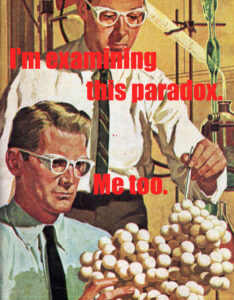 But loving us some paradox is also great for creative practice. Consider the Prime Writer’s Paradox: We want to write. Also, we keep not writing. We’ve all wondered, How do I find the discipline to write consistently, to get my work done?
But loving us some paradox is also great for creative practice. Consider the Prime Writer’s Paradox: We want to write. Also, we keep not writing. We’ve all wondered, How do I find the discipline to write consistently, to get my work done?
Maybe it’s less about discipline than about sharpening the paradox—articulating our equally-valued-but-opposing beliefs:
I want to write; I don’t want to fail.
I want to write; I don’t have anything to say.
I want to write; I’ll be rejected.
I want to write; I want to be comfortable.
By confronting our own paradoxes, we can banish subconscious assumptions—and productively alter the way we think about our work.
So, writers:
- Where do you find meaning/value? (How are you creating it?)
- Tell us what you’ve learned from your writing
experiencesexperiments! - How do you prevent information overload?
- Describe your writing environment!
- What do you do for productive breaks when you’re writing?
- How are you addressing paradoxes (yours or others’)?

